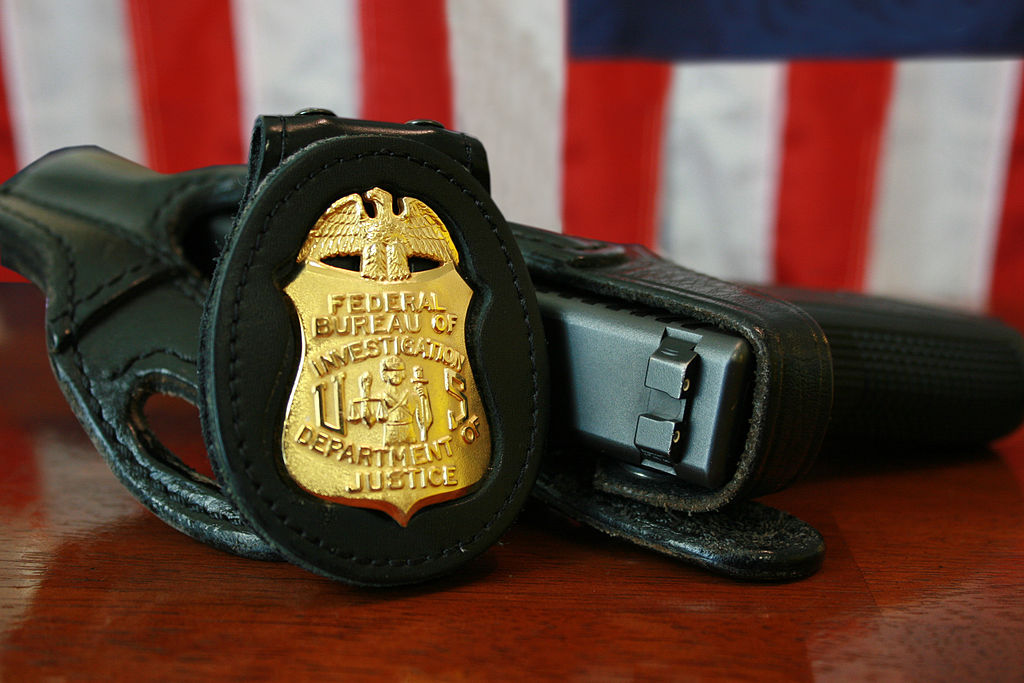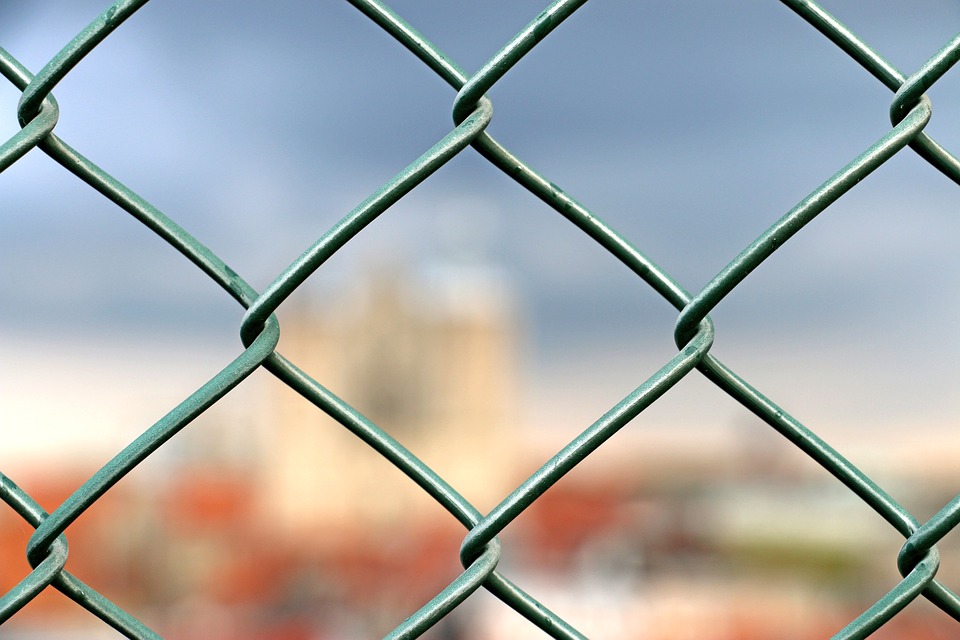By: Cameron Miller
The NCAA endured its fair share of scandals of recent memory. The sordid Jerry Sandusky saga at Penn State broke in 2011.[1] UNC’s paper class scheme was beginning to unravel around the same time.[2] So too was convicted Ponzi schemer Nevin Shapiro’s romp at the University of Miami.[3] Baylor football covered-up players’ sexual assault allegations during the tenure of coach Art Briles.[4] There’s been academic misconduct at Syracuse.[5] Strippers at Louisville.[6] Rogue athletic staffers at Ole Miss.[7]
Yet—just like schools’ facilities—the revelations of so-called “improprieties” in college sports just keep getting bigger.
That was certainly the case last week when the FBI laid bare the details of an ongoing, two-plus year investigation into the “dark underbelly” of college basketball.[8] The FBI’s investigation revealed that individuals holding themselves out as business managers and financial advisors for professional athletes paid assistant coaches at several schools to influence players’ decisions to utilize those individuals’ services when they became professional athletes.[9] In at least a few instances, the coaches passed along some of the cash to the players and their families.[10] The federal authorities also found that Adidas was funneling money—$100,000 or more in some cases—to high school recruits to secure their commitment to an Adidas-sponsored school (e.g., Louisville).[11] The FBI has charged the coaches and other participants with various forms of fraud for their roles in the payments.[12]
While the reverberations of these actions will be felt in college coaching staffs and athletic departments for years, there are several questions of long-term legal significance raised by the FBI’s shocking-but-not-surprising charges.
Violations of NCAA Bylaws Have Now Been Criminalized
Some, if not all, of the criminal charges levied by the FBI are grounded in the NCAA’s non-statutory bylaws. Consider this language in the Wire Fraud Conspiracy charge against USC assistant coach Anthony Bland: “Bland…participated in a scheme to defraud [universities]…by facilitating and concealing bribe payments to prospective and current student-athletes at those universities…thereby causing [universities] to provide athletic scholarships to student-athletes who, in truth and fact, were ineligible to compete as a result of the bribe payments.”[13]
Not only could that line have been lifted out of any NCAA sanctions decision, but logically deconstructing the FBI’s charge reveals that in the absence of the NCAA’s amateurism restrictions there would be no basis for fraud. Simply: If the NCAA allowed its athletes to accept whatever compensation the market dictated, the universities wouldn’t have been “defrauded,” since there wouldn’t have been any NCAA rules to break. Further, there would have been no deception of the athletes had the agent-coach transactions been conducted without fear of consequences, but the NCAA regulations have driven them underground.
In substance, the FBI is criminalizing violations of NCAA bylaws, which deepens the perception that the NCAA’s rules are statutory or have the force of law—neither is true. The public policy implications of this association should concern athletes’ rights advocates, who have worked hard to distinguish that paying college players isn’t inherently nefarious, but that it’s only “wrong” because the NCAA says so.[14] The FBI’s interweaving of NCAA violations with federal fraud charges thus blurs the line between government and private entity.
Entwinement and the NCAA’s State Actor Status
That the federal government is now carrying the NCAA’s water could have interesting implications on the Association’s current status as a private actor. In case after case[15], the NCAA has argued that it is not a state actor and therefore is not required to provide the normal menu of constitutional protections to the athletes and other individuals in its jurisdiction. The Supreme Court affirmed that view in Tarkanian v. NCAA[16], when it ruled “the NCAA is properly viewed as a private actor…when it represents the interests of its entire membership in an investigation of one public university.”[17]
However, when determining the state actor status of nominally private athletic associations, the Supreme Court has utilized the “entwinement” standard, and the NCAA’s newfound relationship with the FBI could change Tarkanian’s calculus. In Brentwood Academy v. Tennessee Secondary School Athletic Assn.[18], the Court held that “Entwinement will support a conclusion that an ostensibly private organization ought to be charged with a public character and judged by constitutional standards.”[19] The majority in Brentwood found requisite levels of “entwinement” by noting that 84 percent of the athletic association’s members were public institutions and that state employees comprised a substantial enough share of the association’s workforce to be indispensable to its operation.[20]
If the FBI continues to involve itself in investigating violations of NCAA bylaws – and there is no indication the current investigation will be over anytime soon – it could be argued that the FBI would be “pervasive[ly] entwined”[21] in the “structure”[22], “composition”[23], and “workings”[24] of the NCAA. With the FBI’s investigatory powers far outstripping its own, there are powerful incentives for the NCAA to permit federal involvement in its enforcement activities. But the deeper the relationship runs, the more the NCAA starts to look like a state actor[25], a burden the Association surely does not wish to shoulder.
Jeffrey Kessler is Taking Notes
Some commentators have questioned whether this most recent scandal to rock college athletics could be the tipping point for the principle of amateurism[26], which is currently under an all-out antitrust assault in Northern California federal district court. Commonly known as the Jenkins case[27], the players in that litigation are represented by noted sports attorney Jeffrey Kessler, who is surely licking his chops at the FBI’s reports. Kessler and his team could spin the new revelations in this way: Clearly, college athletes were being paid for their athletic skills, which the NCAA argues would unwind the very fabric of college sports. And yet, Kessler might note, there is no evidence that these payments divorced the recipient players’ academic and athletic experiences. When the NCAA claims at trial that paying athletes a market wage would forever dissociate academics and athletics, the FBI’s materials should be at the top of Kessler’s exhibit list.
[1] CNN Library, Penn State Scandal Fast Facts, CNN (July 4, 2017), http://www.cnn.com/2013/10/28/us/penn-state-scandal-fast-facts/index.html.
[2] Staff Reports, Here’s the timeline of the UNC Academic Scandal, from 2011 until now, The News & Observer (May 25, 2017), http://www.newsobserver.com/sports/college/acc/unc/article152605539.html.
[3] Amy Daughters, Complete Timeline of Miami NCAA Saga, Bleacher Report (April 23, 2013), http://bleacherreport.com/articles/1615491-complete-timeline-of-miami-ncaa-saga.
[4] Staff, Timeline: Baylor Sexual Assault Controversy, Waco Tribune-Herald (January 1, 2017), http://www.wacotrib.com/news/higher_education/timeline-baylor-sexual-assault-controversy/article_abf21ab8-2267-51bf-84d8-6268f4222af0.html.
[5] “Syracuse University Public Infractions Decision”, NCAA.org (March 6, 2015), https://www.ncaa.org/sites/default/files/Syracuse%20Final%20Public%20Infractions%20Decision%20%28Corrected%29.pdf.
[6] Marc Tracy, N.C.A.A. Places Louisville on Probation and Suspends Pitino, The New York Times (June 15, 2017), https://www.nytimes.com/2017/06/15/sports/ncaabasketball/louisville-probation-rick-pitino-suspended-ncaa.html?mcubz=1&_r=0.
[7] “Case Summary,” The University of Mississippi – Information About NCAA Case (August 9, 2017), http://athleticsworking.wp2.olemiss.edu.
[8] Matt Ford, The ‘Dark Underbelly’ of College Basketball, The Atlantic (September 26, 2017), https://www.theatlantic.com/politics/archive/2017/09/the-dark-underbelly-of-college-basketball/541155/.
[9] Sealed Complaint, United States of America v. Chuck Connors Person (S.D.N.Y. Sept. 25, 2017); Sealed Complaint, United States of America v. Lamont Evans, Emanuel Richardson, Anthony Bland, Christian Dawkins, and Munish Sood (S.D.N.Y. Sept. 25, 2017).
[10] Sealed Complaint at 32, United States of America v. Chuck Connors Person (S.D.N.Y. Sept. 25, 2017).
[11] Sealed Complaint, United States of America v. James Gatto, Merl Code, Christian Dawkins, Johanthan Brad Augustine, and Munish Sood (S.D.N.Y. Sept. 25, 2017).
[12] Id.
[13] Sealed Complaint at 9, United States of America v. Lamont Evans, Emanuel Richardson, Anthony Bland, Christian Dawkins, and Munish Sood (S.D.N.Y. Sept. 25, 2017).
[14] Robert Silverman, Forget Bribes: The Real NCAA Crime is Exploiting Athletes, The Daily Beast (September 26, 2017), http://www.thedailybeast.com/forget-bribes-the-real-ncaa-crime-is-exploiting-athletes (“prick your average college sports fan and ask him or her to delineate what the actual wrongdoing is here, and the response they normally have is, ‘it’s wrong to pay a college athlete.’ But why? …The most common answer—beyond the NCAA’s groaning insistence that the presence of money will forevermore corrupt the athletes and their athletic programs, which, given today’s news, scans as grimly ironic at best—is because the NCAA says it must be so.”).
[15] Joe Nocera, Standing Up to the N.C.A.A., The New York Times (March 23, 2012), http://www.nytimes.com/2012/03/24/opinion/nocera-standing-up-to-the-ncaa.html?mcubz=1.
[16] 488 U.S. 179 (1988).
[17] Id. at 197.
[18] 531 U.S. 288 (2001).
[19] Id. at 302.
[20] Id. at 299-300.
[21] Id. at 291.
[22] Id.
[23] Id. at 298.
[24] Id.
[25] Travis Waldron, The Feds Could Fix College Sports. But They’re Playing For the Wrong Team, The Huffington Post (September 29, 2017), http://www.huffingtonpost.com/entry/ncaa-rules-corruption_us_59ce51d8e4b09538b507dece?ncid=engmodushpmg00000004 (“If the NCAA is able to use the DOJ as its watchdog and enforcement arm, we’ve entered a whole new world.”).
[26] Michael McCann, Entire Notion of NCAA Amateurism May Be On the Line in FBI’s Corruption Case, SI.com (September 26, 2017), https://www.si.com/college-basketball/2017/09/26/fbi-corruption-college-basketball-fraud-louisville-bribe.
[27] IN RE: NATIONAL COLLEGIATE ATHLETIC ASSOCIATION ATHLETIC GRANT-IN-AID CAP ANTITRUST LITIGATION, 4:14-md-02541-CW (N.D. Cal. Sept. 20, 2017).




